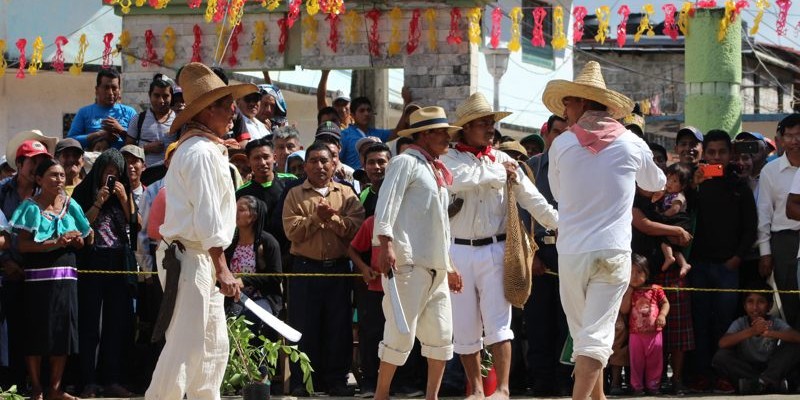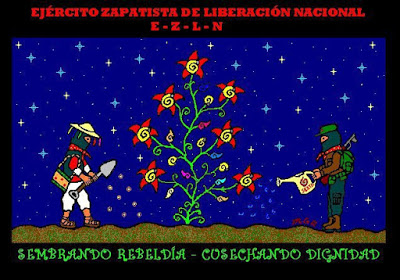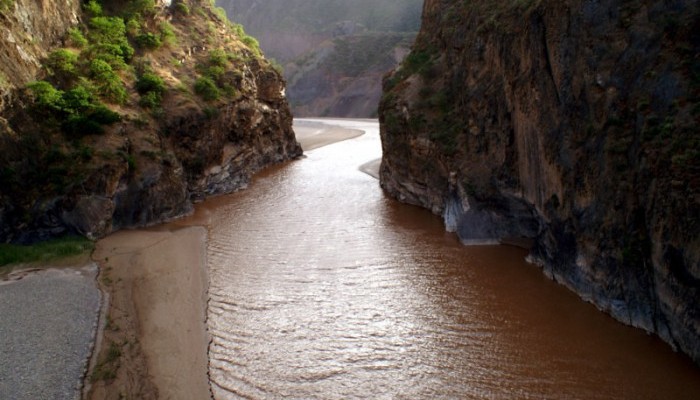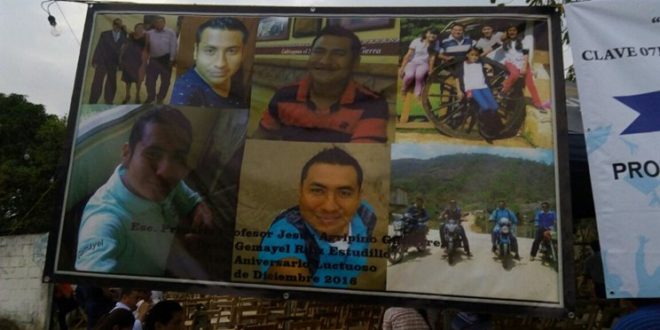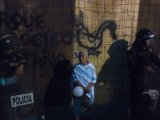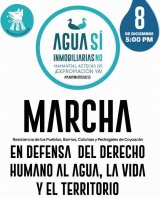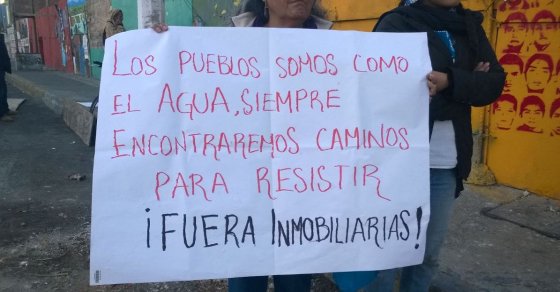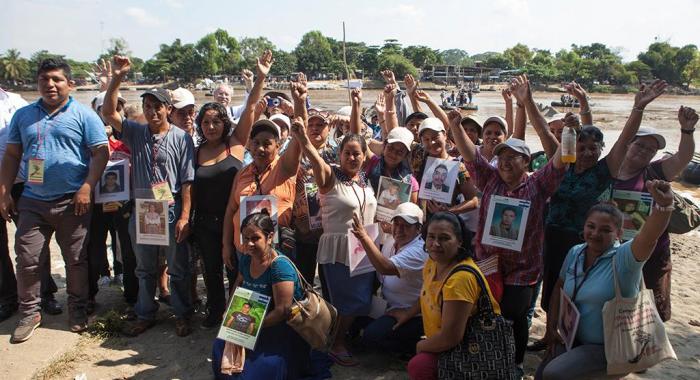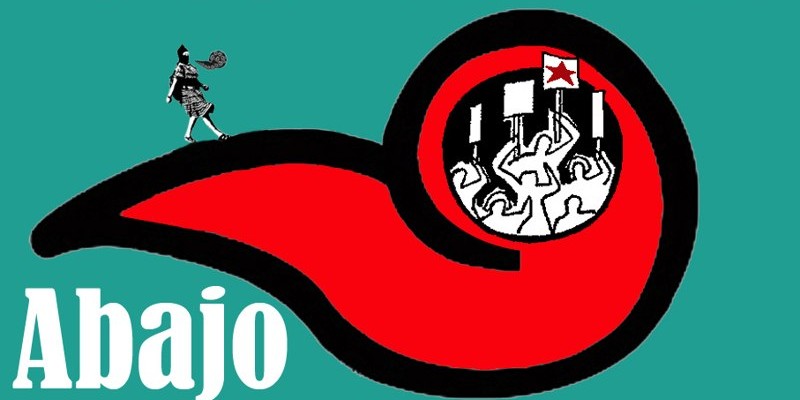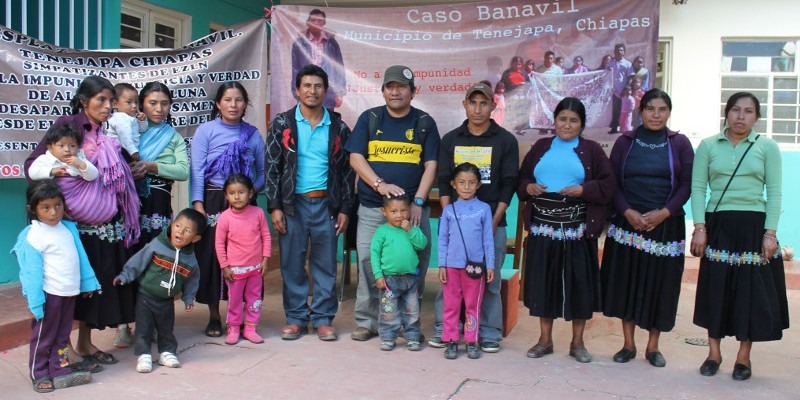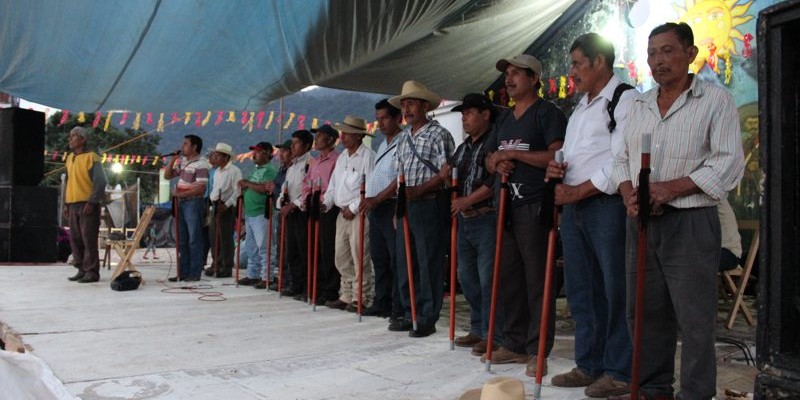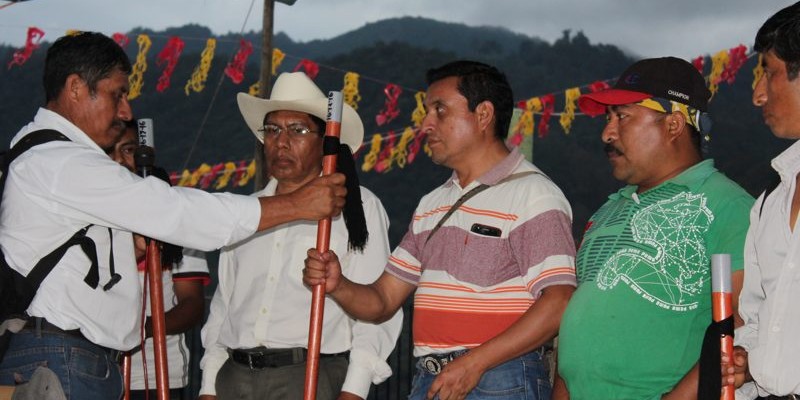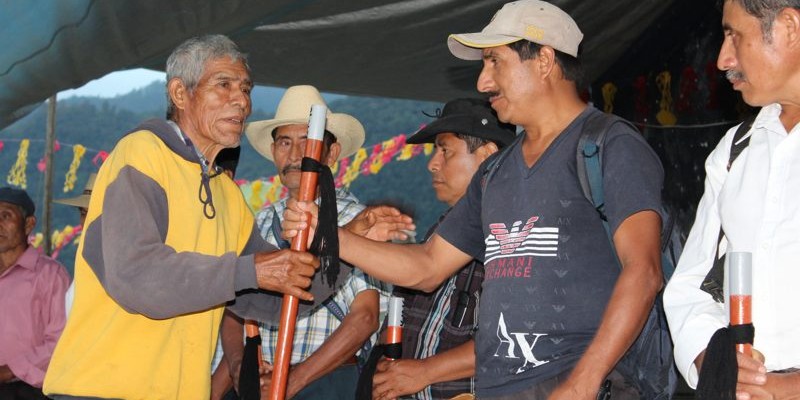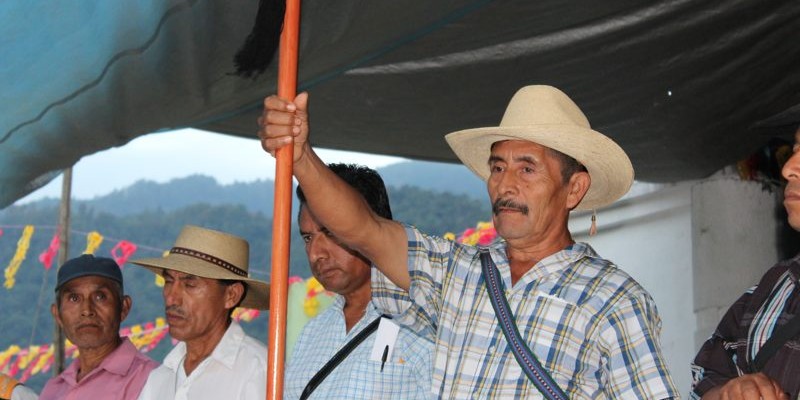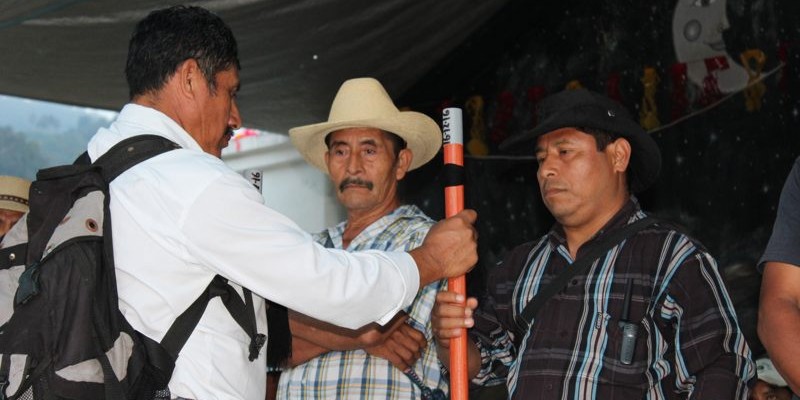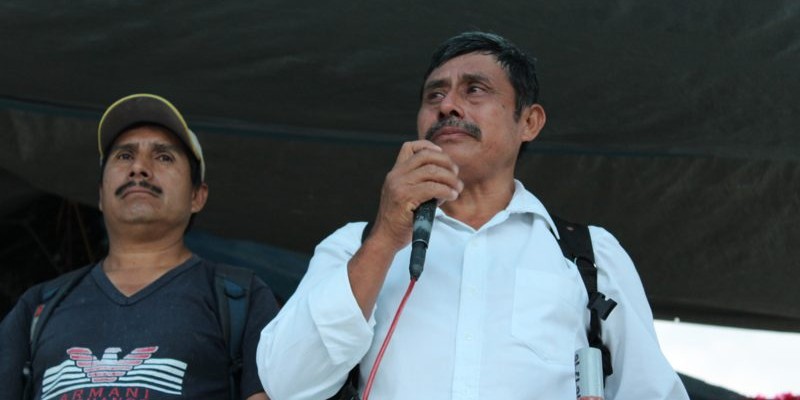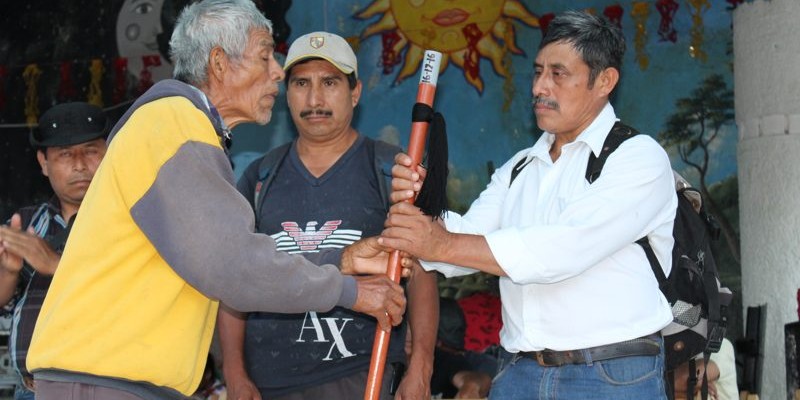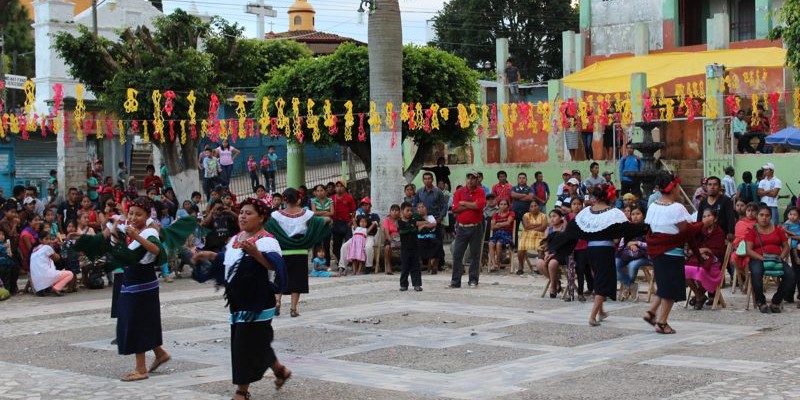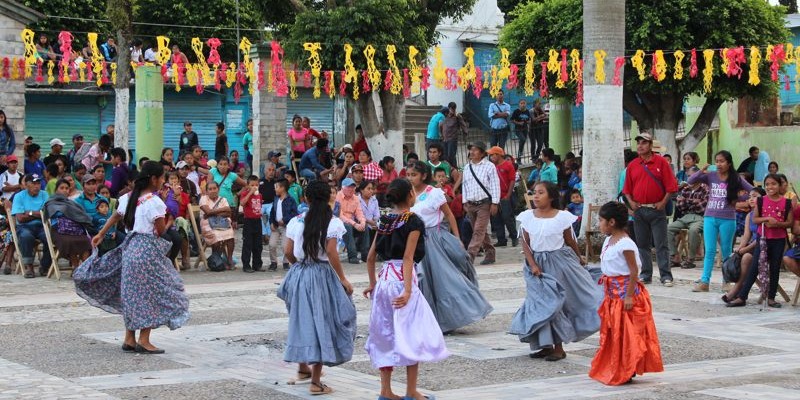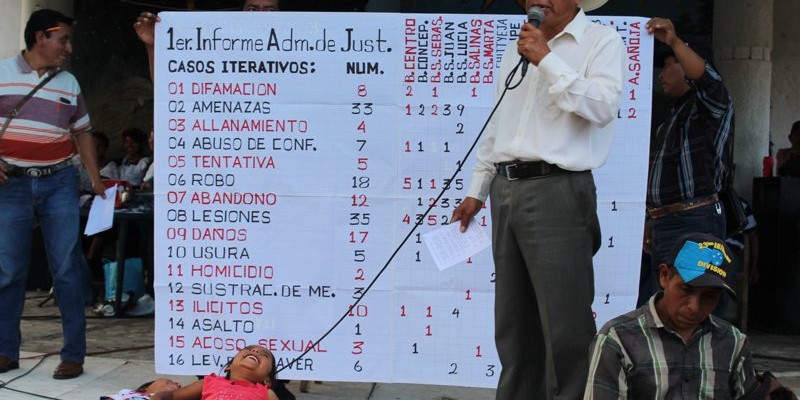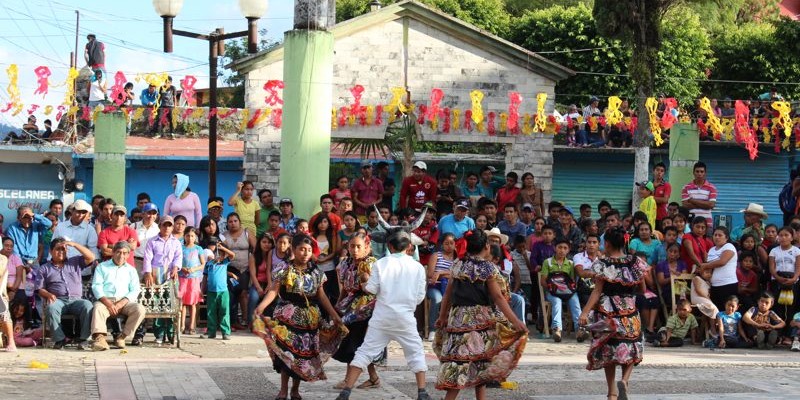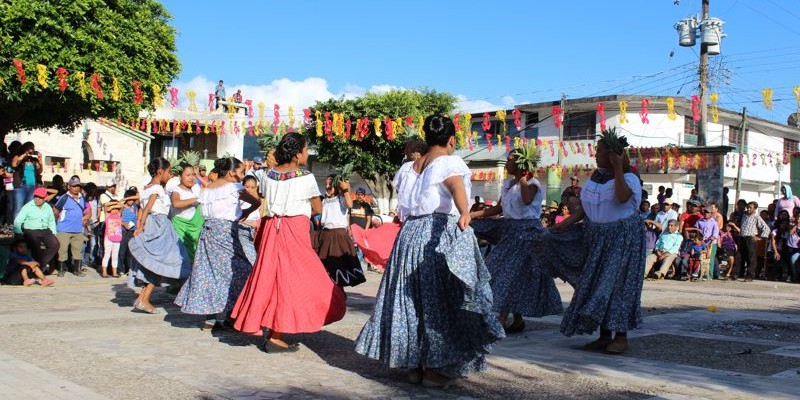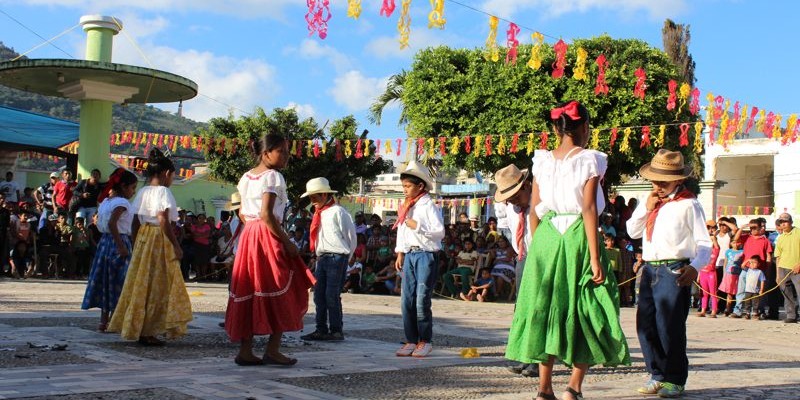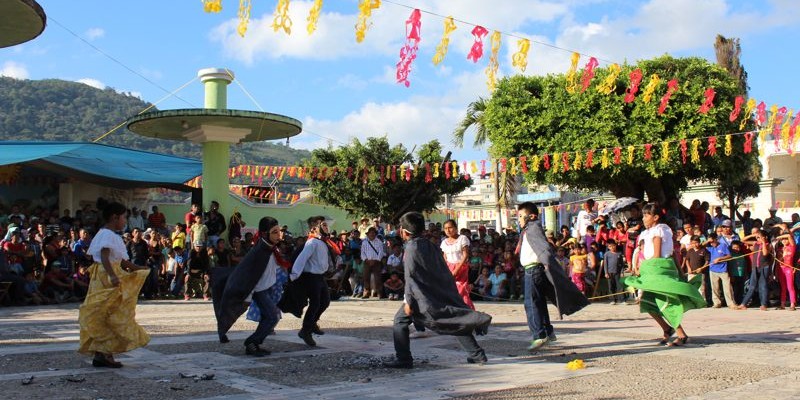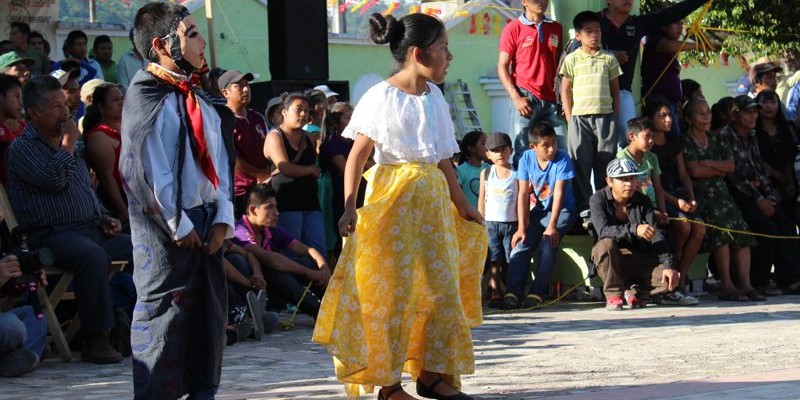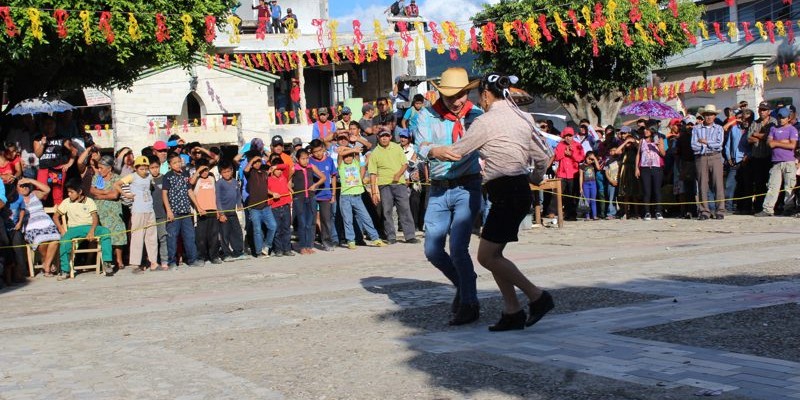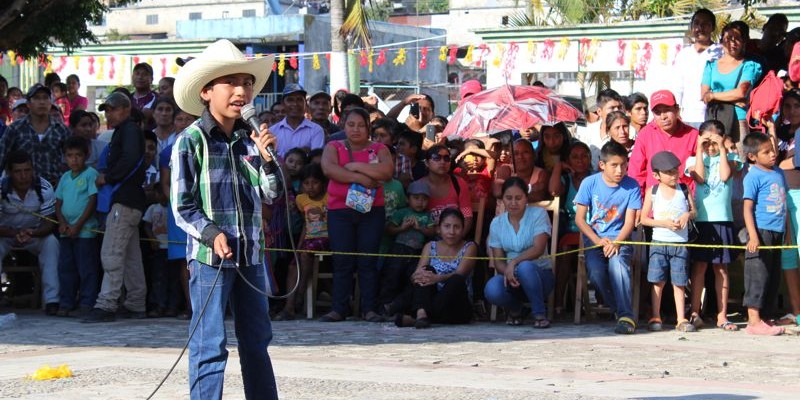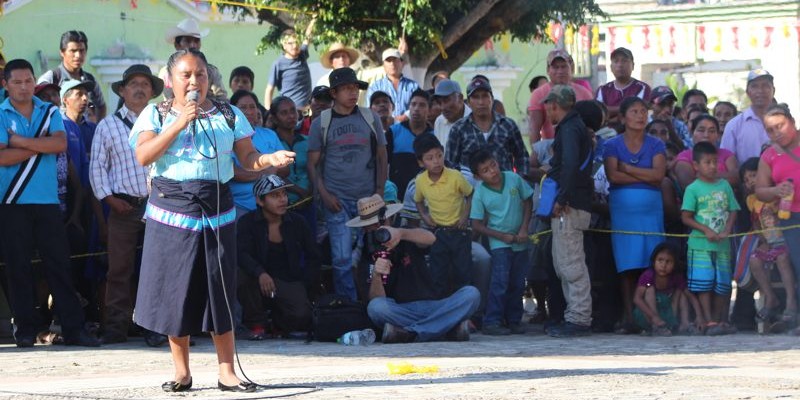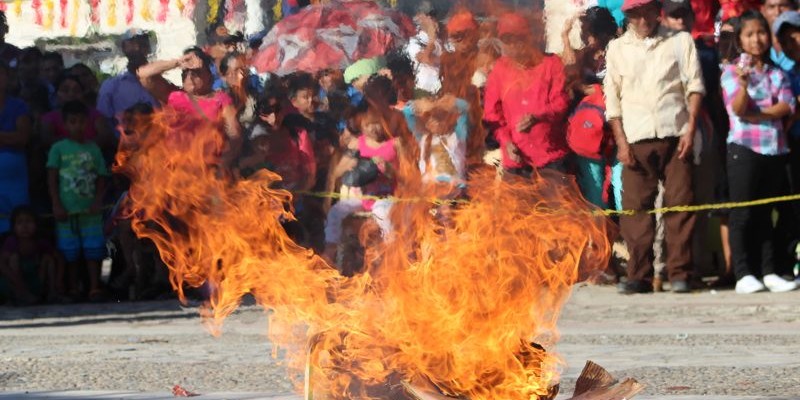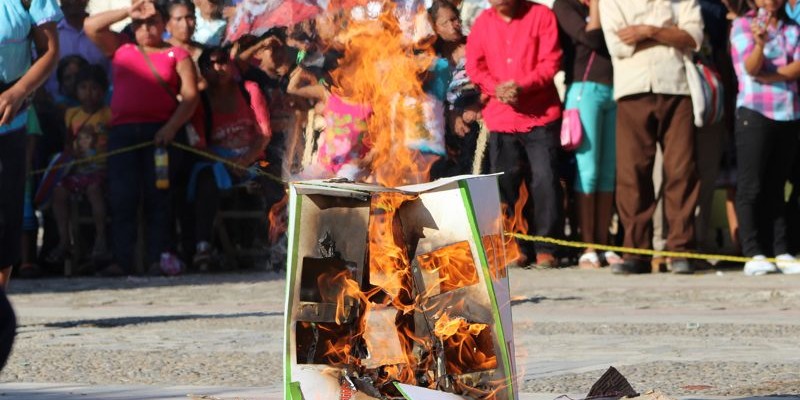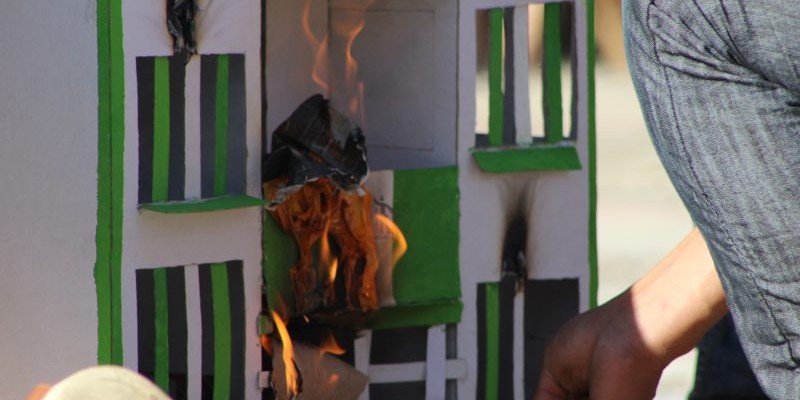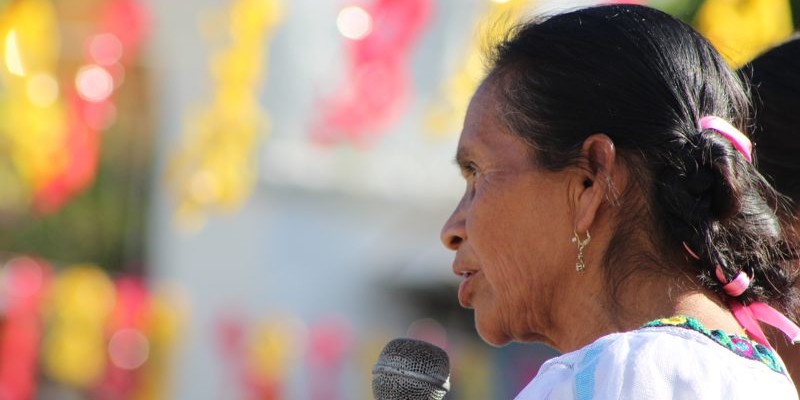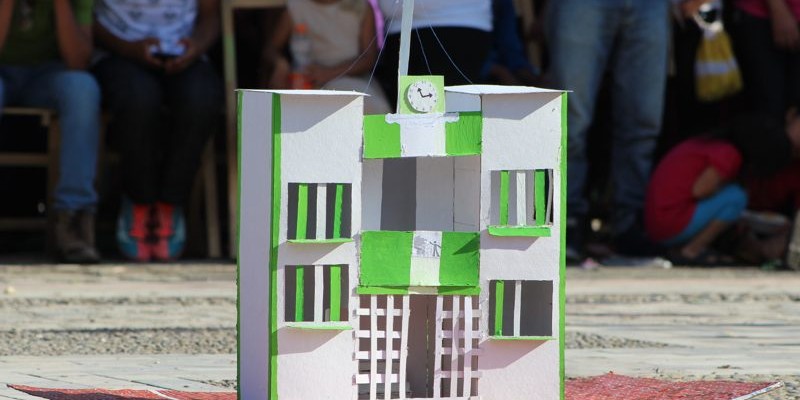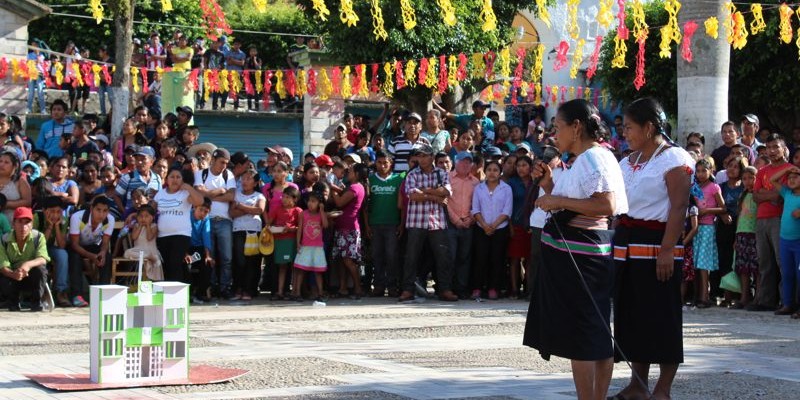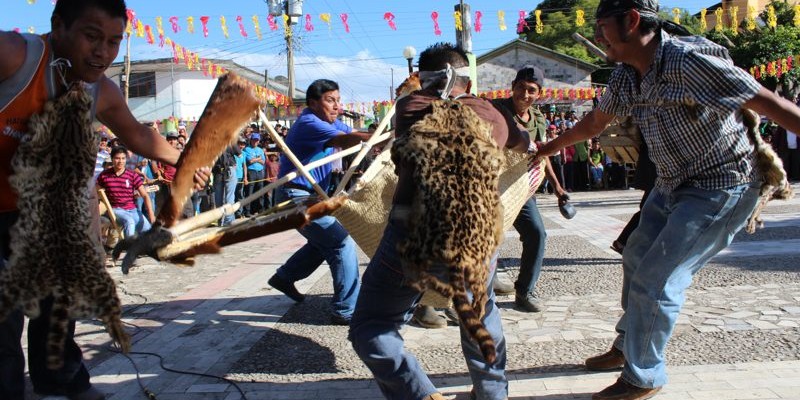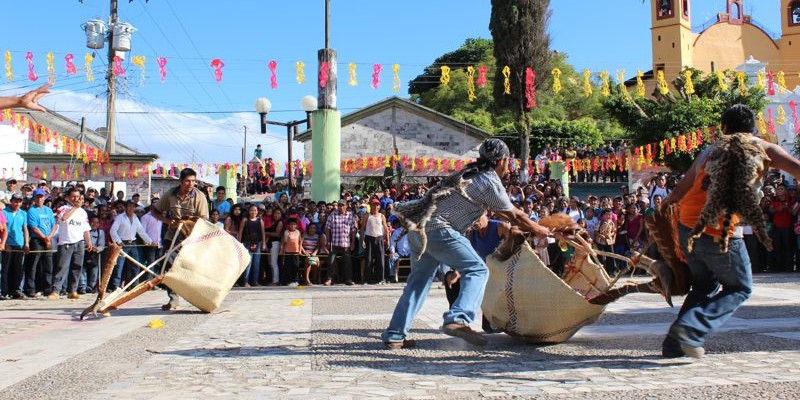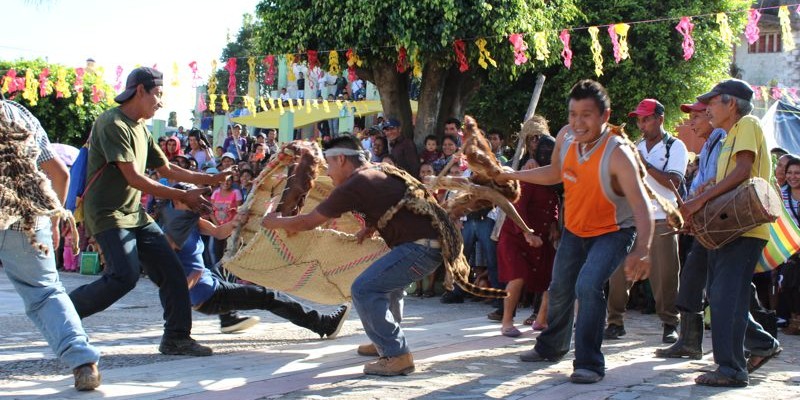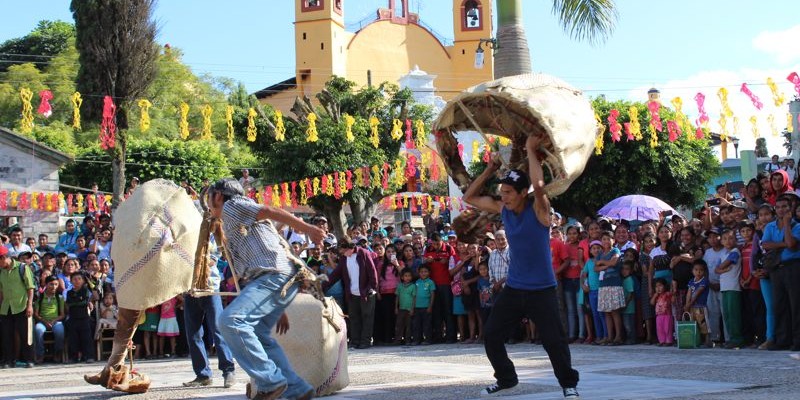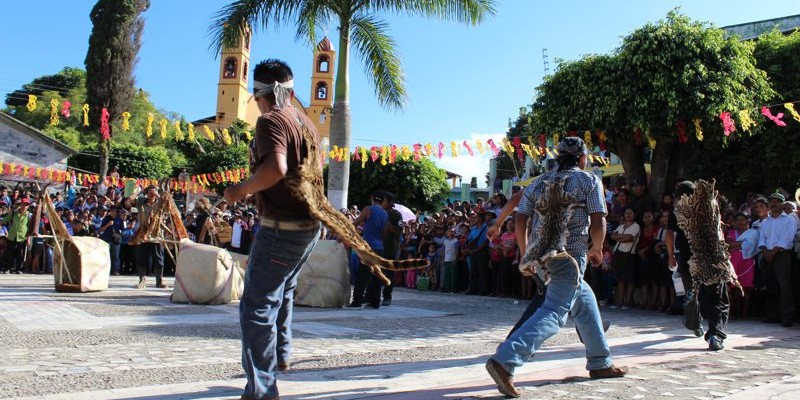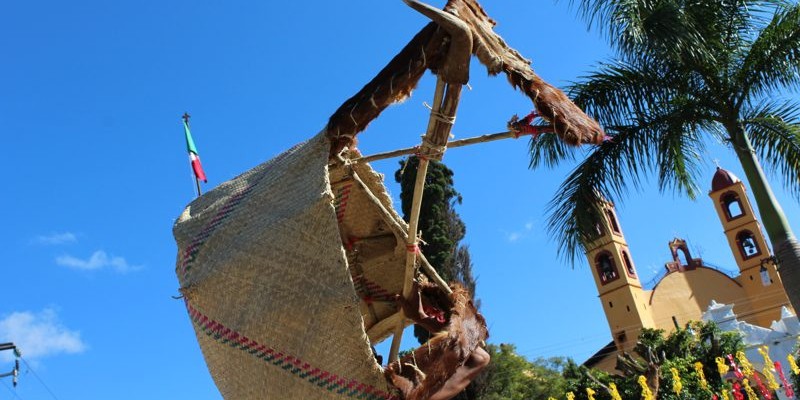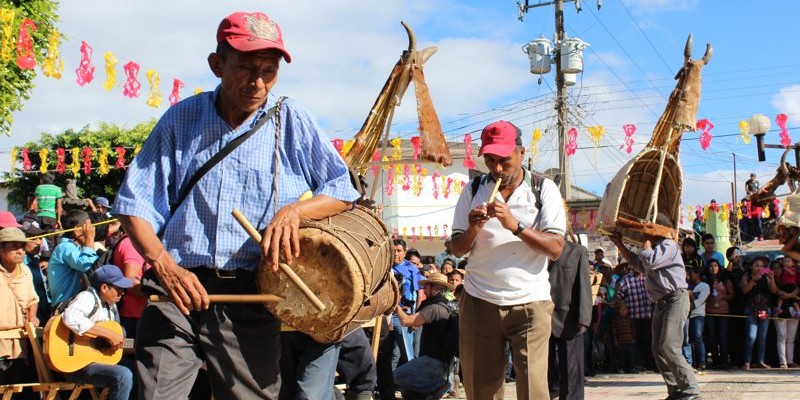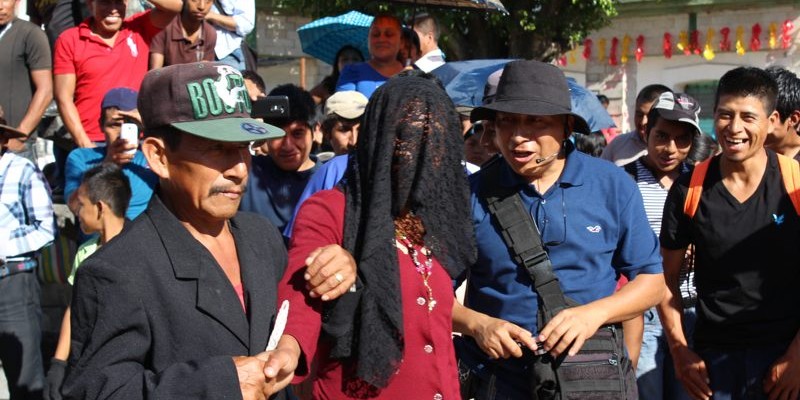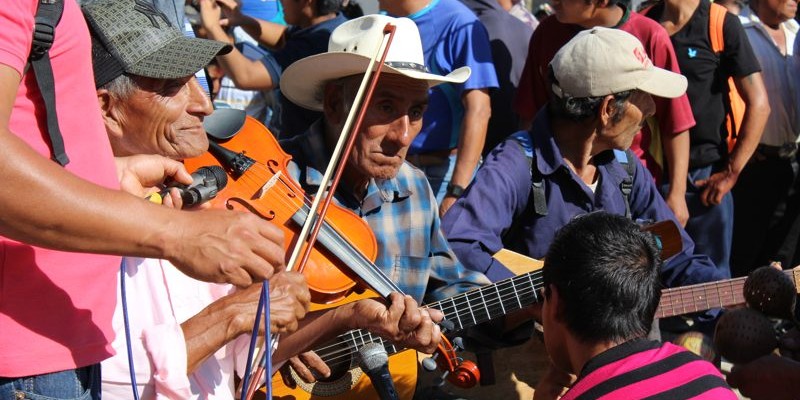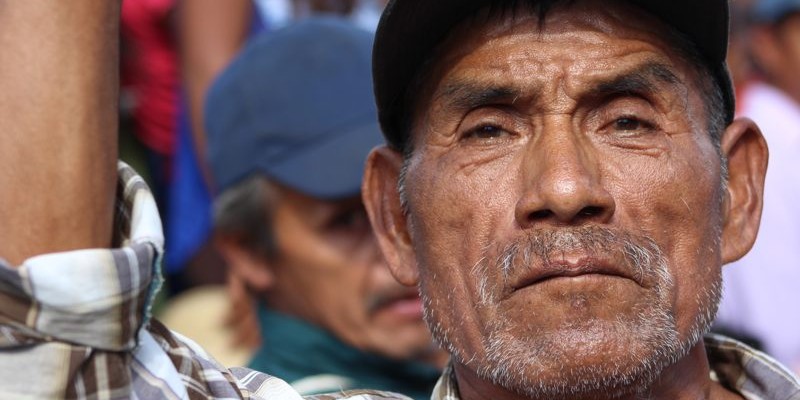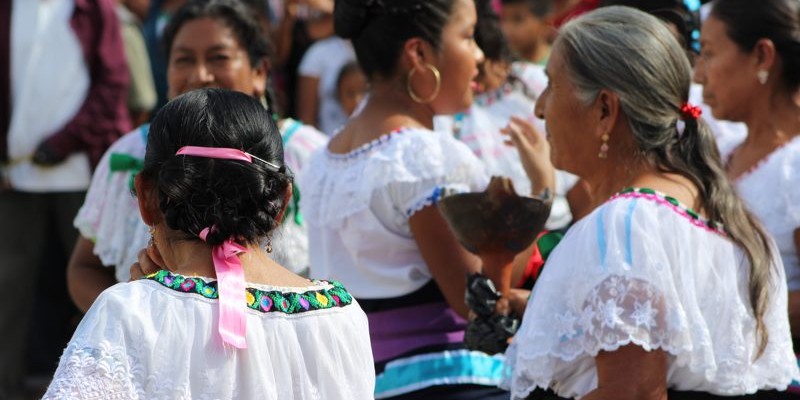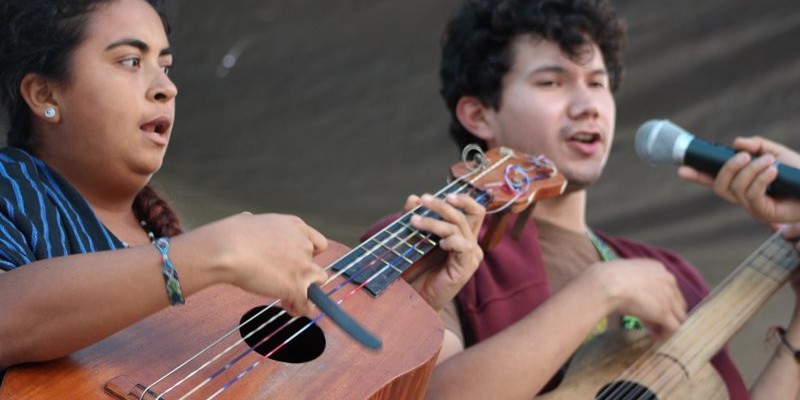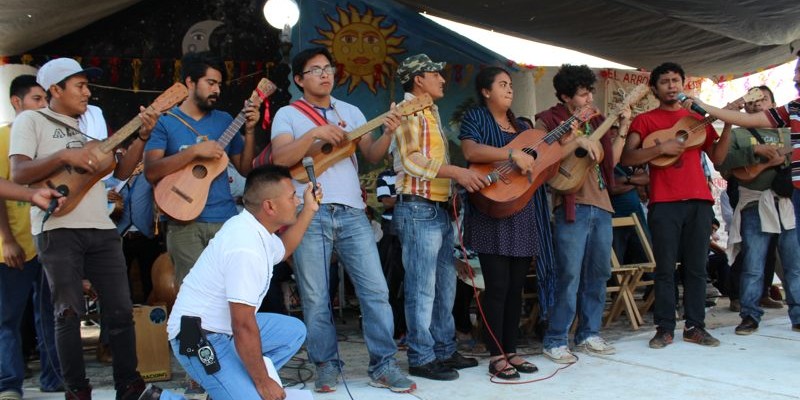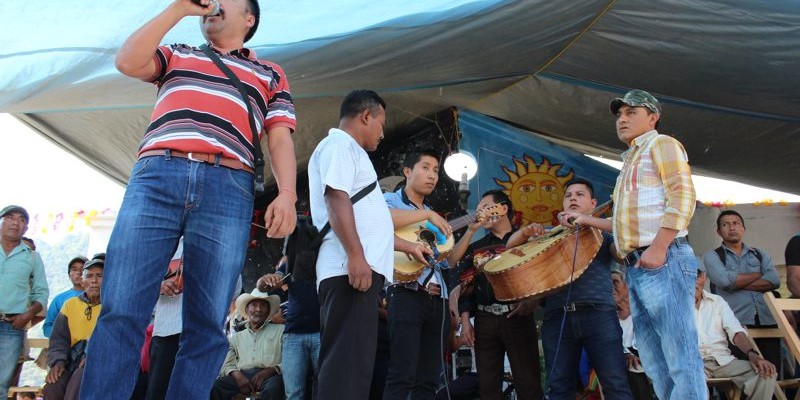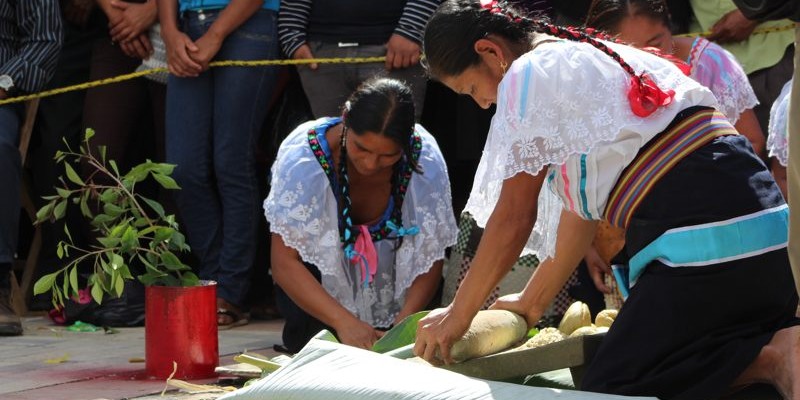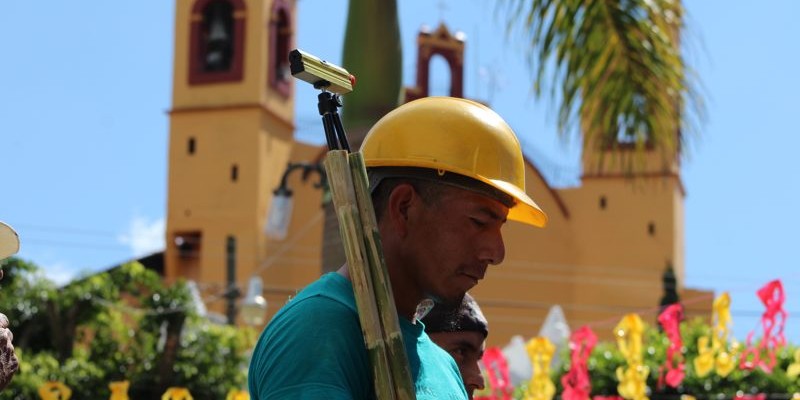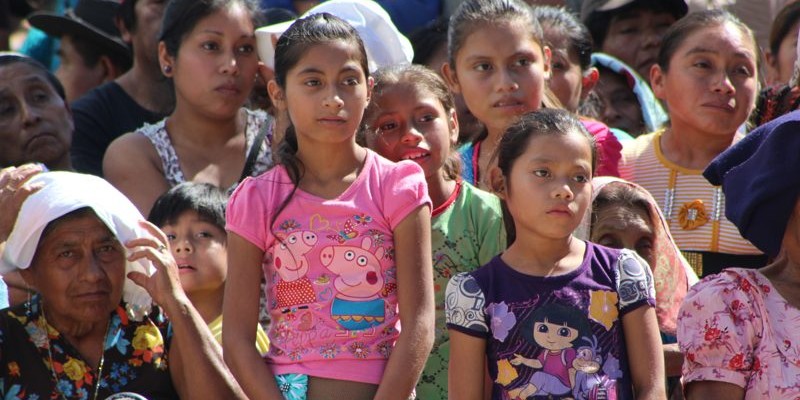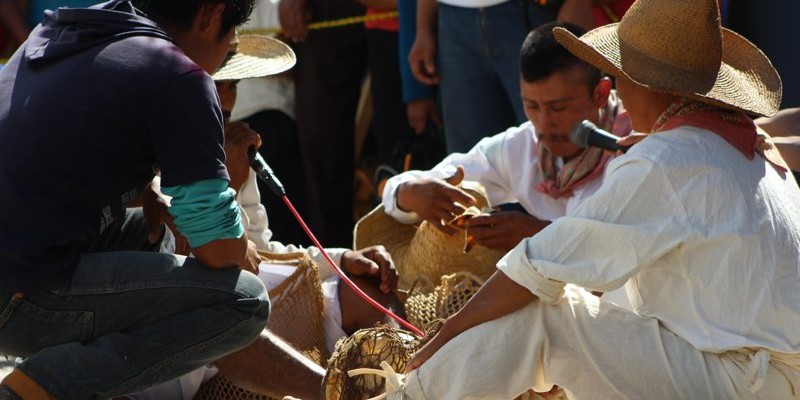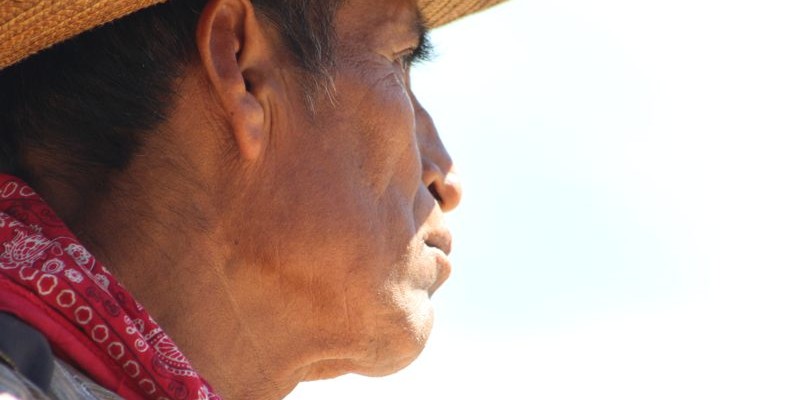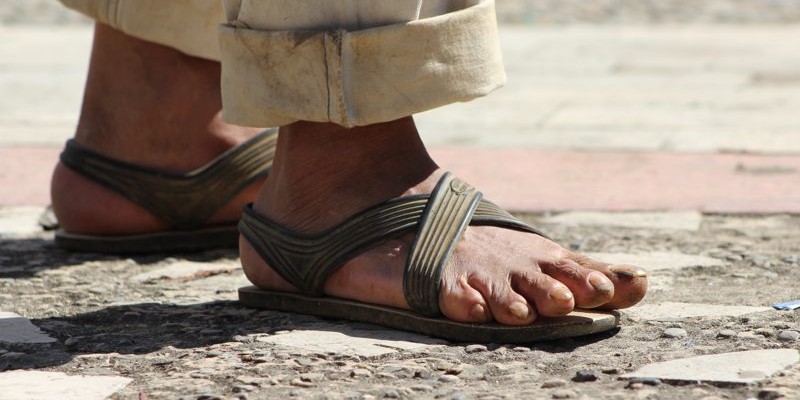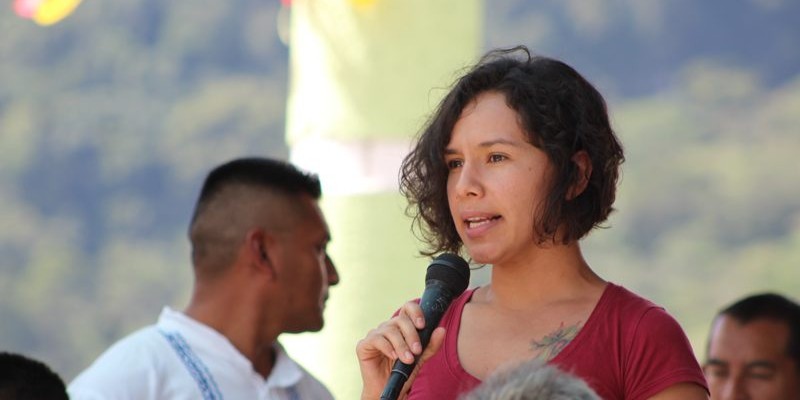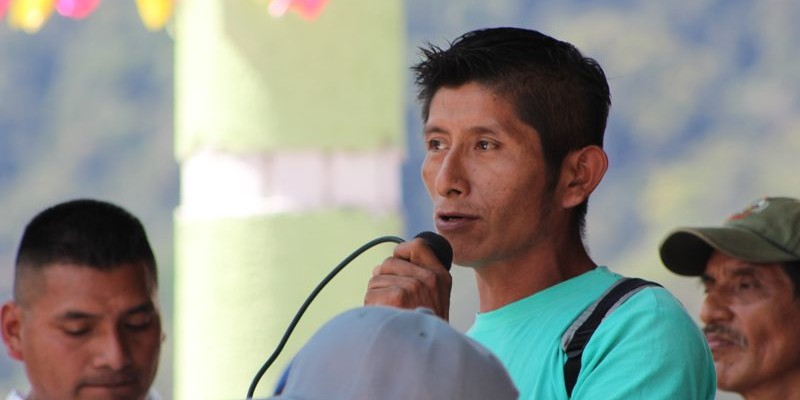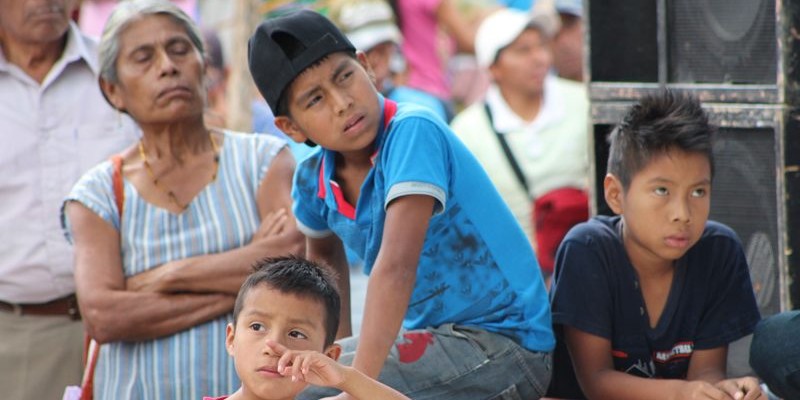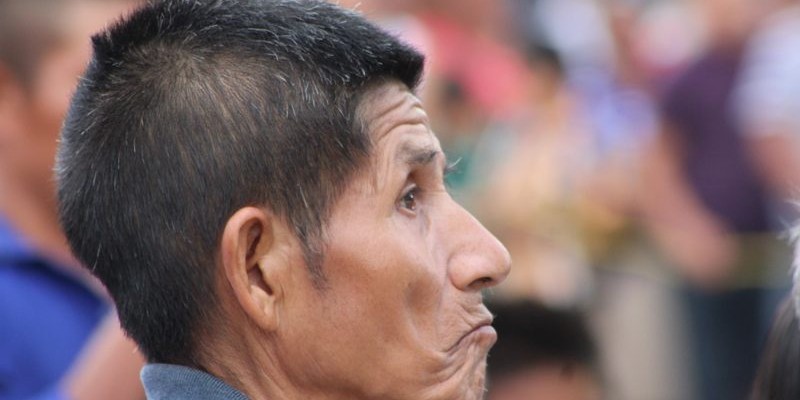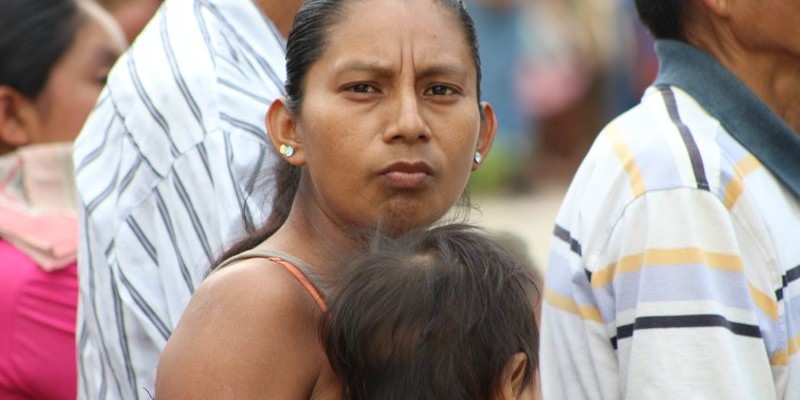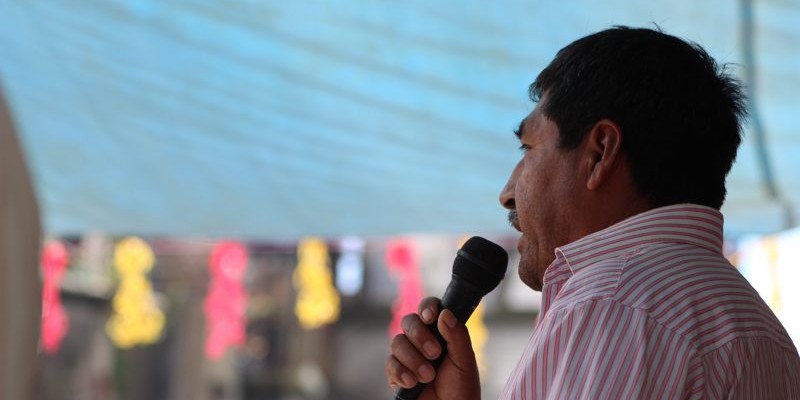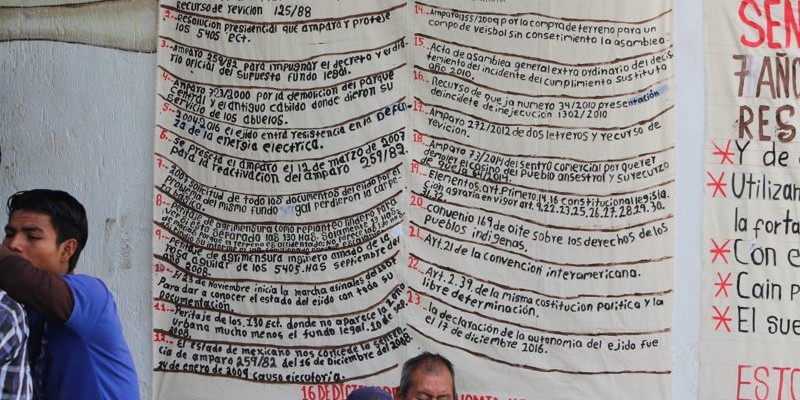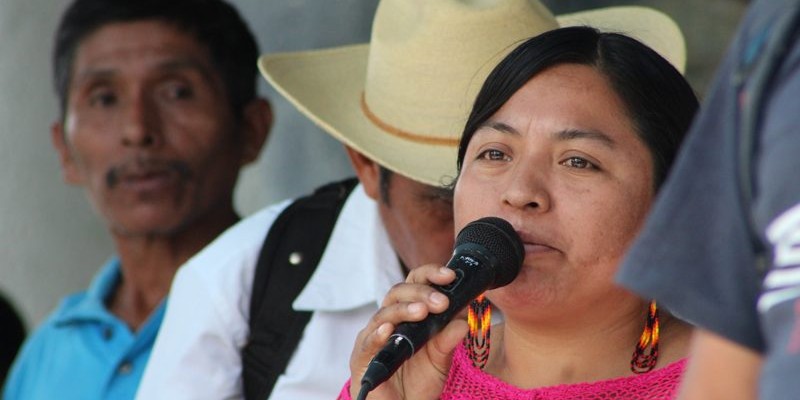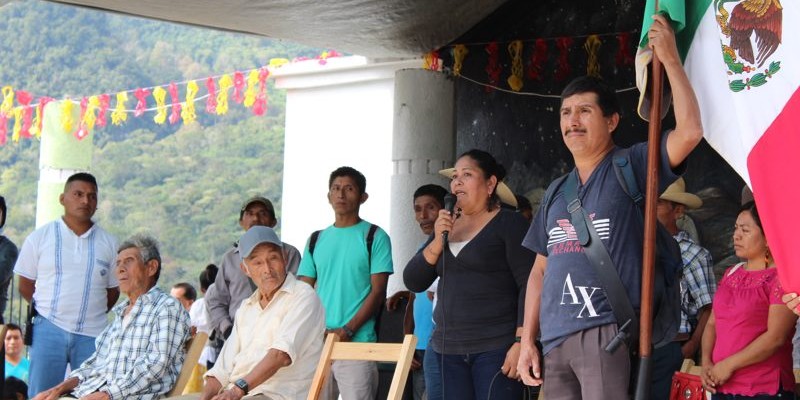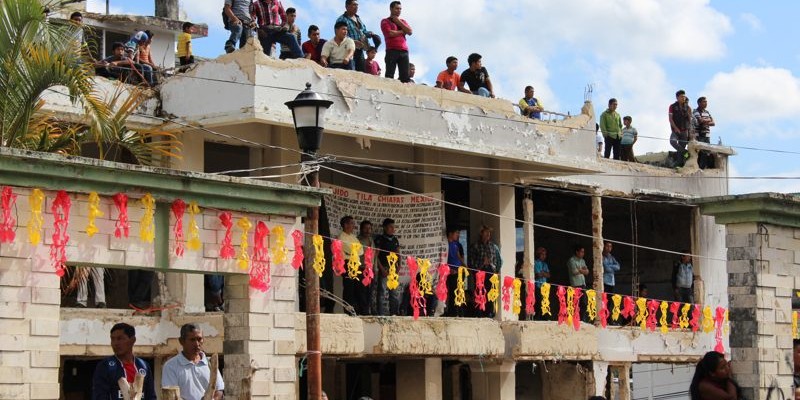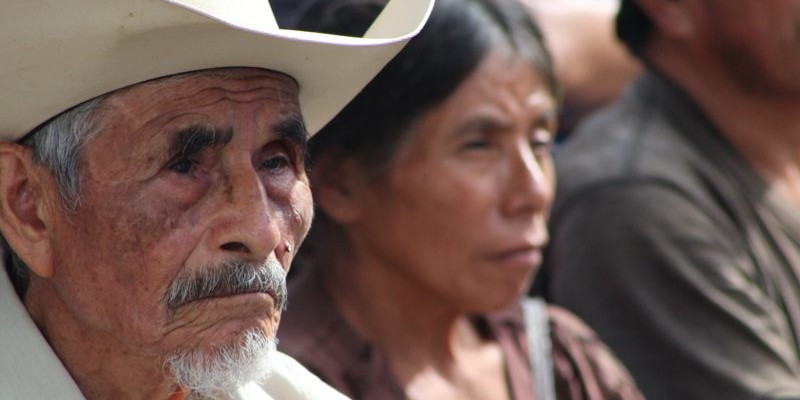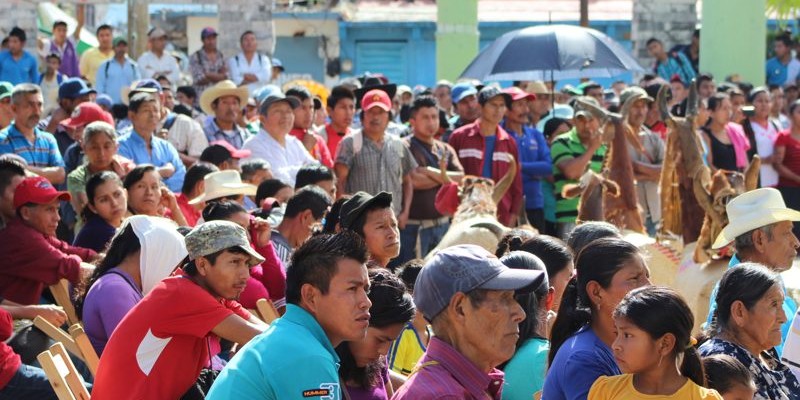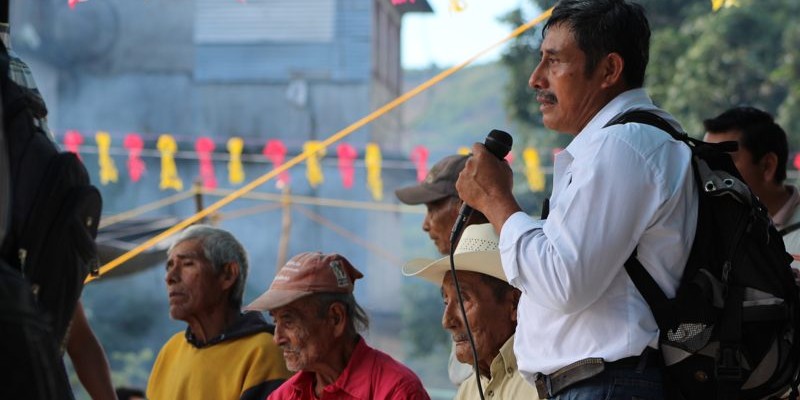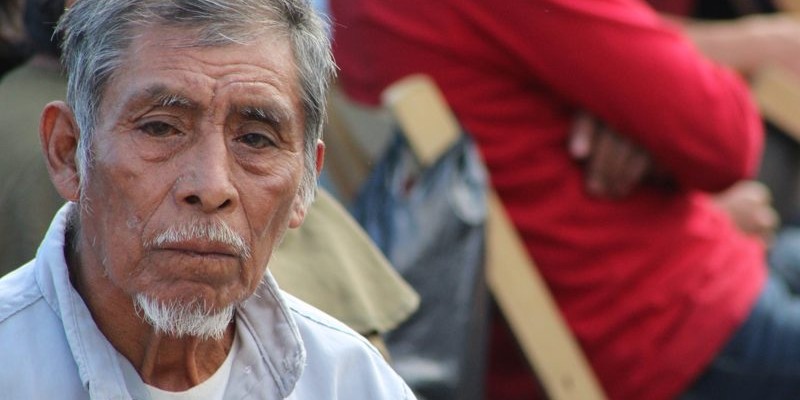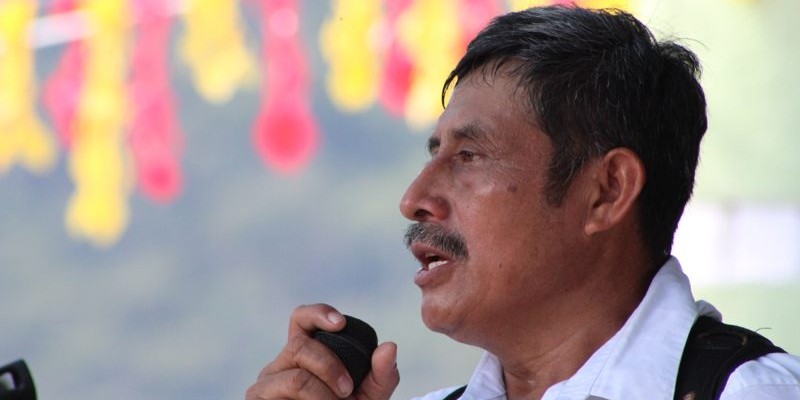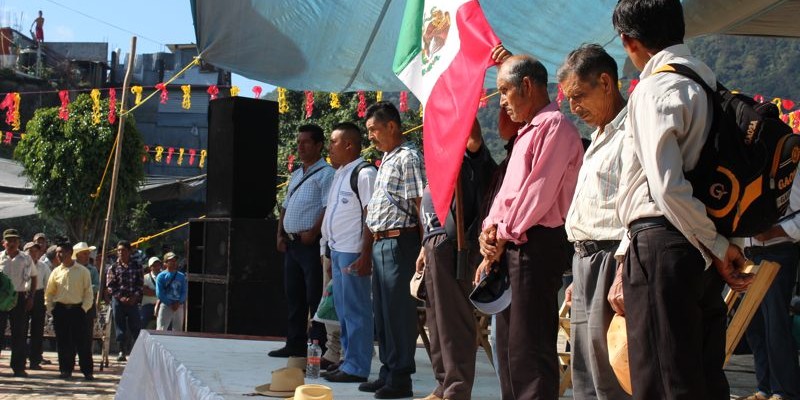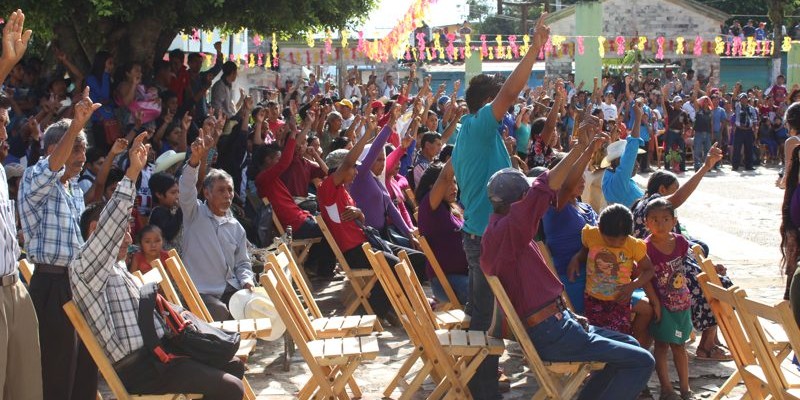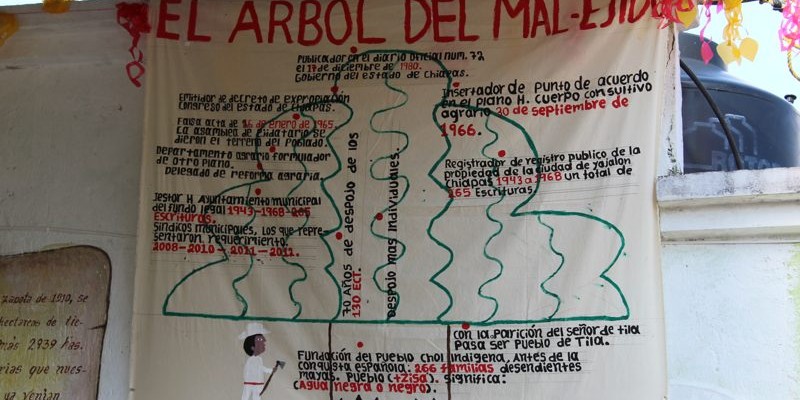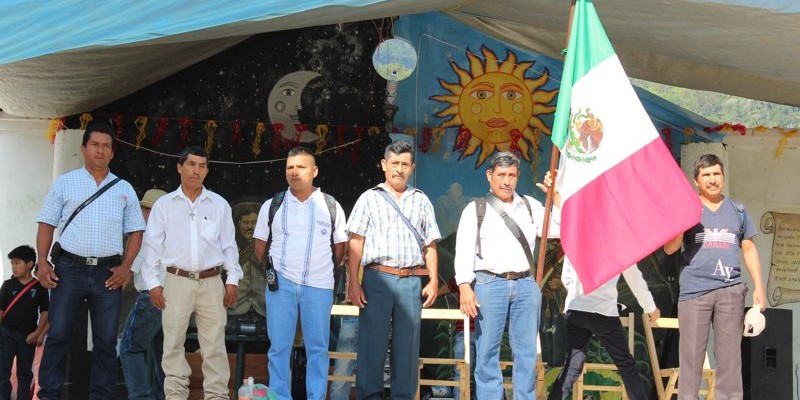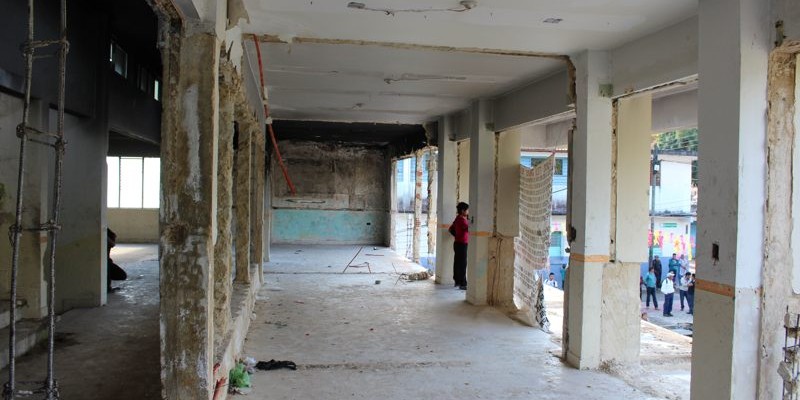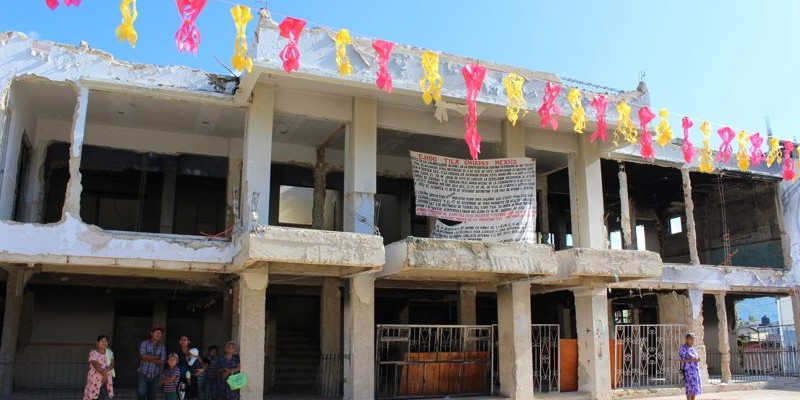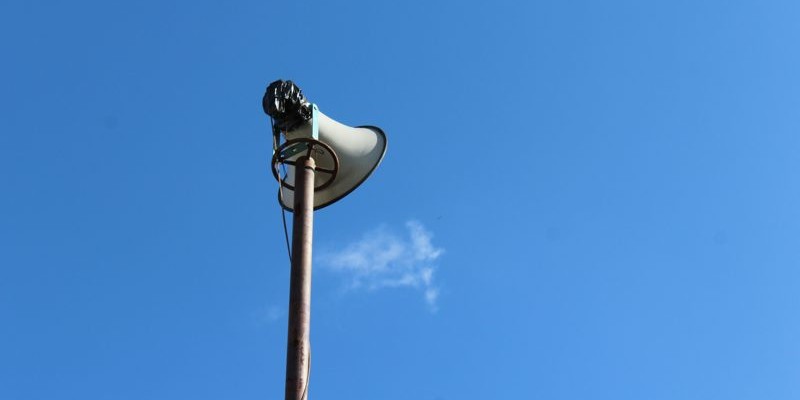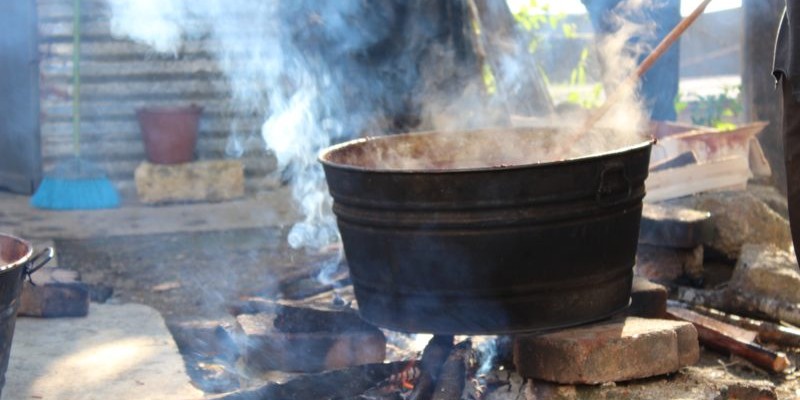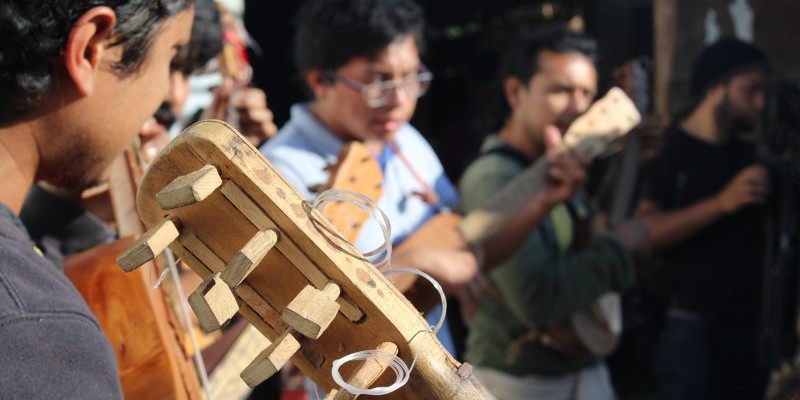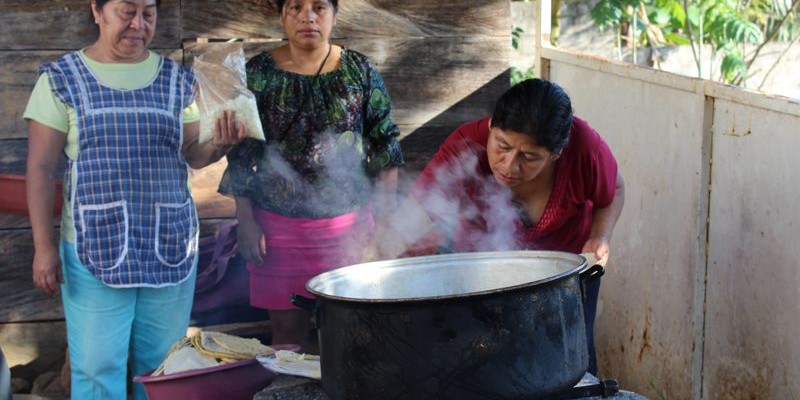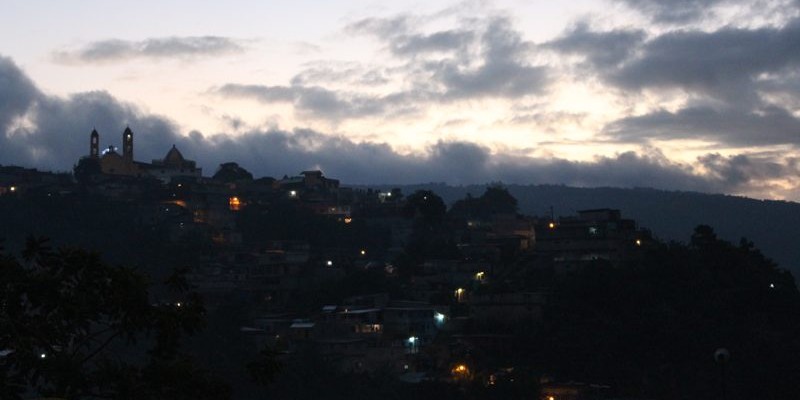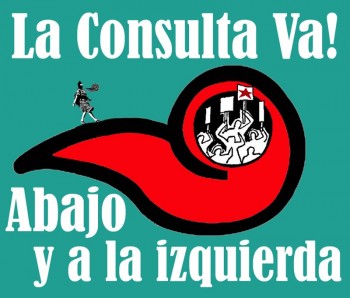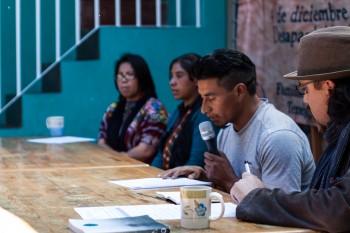
(Español) ¿Cómo es un pueblo libre? Primer aniversario de la autonomía de Tila
Por Alejandro Reyes
Colectivo Radio Zapatista
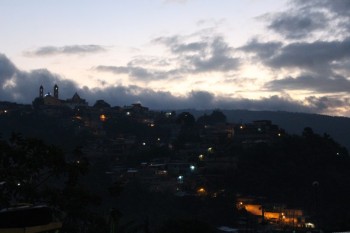 Los primeros rayos de la alborada se insinúan apenas tras la iglesia recortada en la cumbre del cerro, puntuado por cientos de luces minúsculas que centellean en la penumbra indecisa de la madrugada. Entonces entran los principales a la sala donde dormimos, acompañados de unas 40 personas, para prender las velas del altar y entonar los cánticos de agradecimiento al Señor de Tila por este año de autonomía y para pedir sabiduría, juicio, criterio, para enfrentar las dificultades por venir. El humo del copal llena la sala mientras las voces de decenas de personas resuenan en lengua chol, recordando la larga lucha del Ejido Tila por su tierra y su libertad.
Los primeros rayos de la alborada se insinúan apenas tras la iglesia recortada en la cumbre del cerro, puntuado por cientos de luces minúsculas que centellean en la penumbra indecisa de la madrugada. Entonces entran los principales a la sala donde dormimos, acompañados de unas 40 personas, para prender las velas del altar y entonar los cánticos de agradecimiento al Señor de Tila por este año de autonomía y para pedir sabiduría, juicio, criterio, para enfrentar las dificultades por venir. El humo del copal llena la sala mientras las voces de decenas de personas resuenan en lengua chol, recordando la larga lucha del Ejido Tila por su tierra y su libertad.
Es el 16 de diciembre de 2016, y un día como éste, hace exactamente un año, los ejidatarios, cansados de la injusticia de la mal llamada “Justicia” mexicana, hicieron realidad una lucha de casi un siglo. Tres meses antes, el 16 de septiembre de 2015, miles de ejidatarios habían marchado de la casa ejidal a la plaza central del poblado de Tila. Allí colocaron una escalera en la fachada del edificio del Ayuntamiento, varias personas subieron a los balcones, colgaron una manta recordando a los desaparecidos de Ayotzinapa y exigiendo la salida del Ayuntamiento y el cese a los hostigamientos policiales y paramilitares. Desde el balcón, las autoridades ejidales dieron el grito de la Independencia. Y abajo, miles de voces indignadas repetían una y otra vez: “¡Si no hay solución, habrá demolición!”.
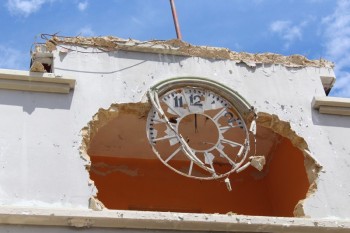 Tres meses después, el 16 de diciembre de 2015, la consigna se volvió realidad. Hartos de décadas de atropellos y la inacción del Estado mexicano, los ejidatarios decidieron expulsar por su cuenta al Ayuntamiento, ubicado ilegalmente en su territorio desde mediados del siglo XX, y recuperar las 130 hectáreas que el gobierno municipal ha intentado arrebatarles desde entonces. El Ayuntamiento, que tanto daño hizo durante tanto tiempo, fue destruido. El gran reloj en lo alto de la fachada quedó hecho pedazos y así se detuvo el tiempo kaxlán, el tiempo de la imposición mestiza, el tiempo del despojo y la violencia institucionales. Así comenzó otro tiempo, el tiempo indígena chol, el tiempo de la libertad. El milagro de Tila se había realizado.
Tres meses después, el 16 de diciembre de 2015, la consigna se volvió realidad. Hartos de décadas de atropellos y la inacción del Estado mexicano, los ejidatarios decidieron expulsar por su cuenta al Ayuntamiento, ubicado ilegalmente en su territorio desde mediados del siglo XX, y recuperar las 130 hectáreas que el gobierno municipal ha intentado arrebatarles desde entonces. El Ayuntamiento, que tanto daño hizo durante tanto tiempo, fue destruido. El gran reloj en lo alto de la fachada quedó hecho pedazos y así se detuvo el tiempo kaxlán, el tiempo de la imposición mestiza, el tiempo del despojo y la violencia institucionales. Así comenzó otro tiempo, el tiempo indígena chol, el tiempo de la libertad. El milagro de Tila se había realizado.
Update on the Gathering “The Zapatistas and ConSciences for Humanity”
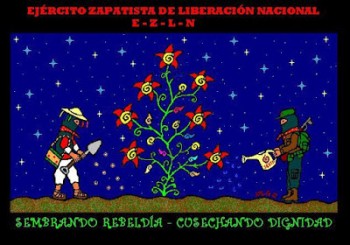
Subcomandante Insurgente Moisés
MEXICO
To the scientific community of Mexico and the world:
To the National and International Sixth:
We send you our greetings. We want to update you on the plans for the gathering “The Zapatistas and ConSciences for Humanity,” to be held at the CIDECI-UniTierra in San Cristóbal de las Casas, Chiapas, from December 25, 2016 through January 4, 2017.
- As of December 12, 2016, we have the confirmed participation of 82 scientists from the following countries:
| GermanyCanada
Chile United States Spain Israel Paraguay |
United KingdomUruguay
Brazil Mexico (Baja California, Campeche, Mexico City, Mexico State, Jalisco, Morelos, Oaxaca, Puebla, Querétaro, San Luis Potosí) |
- The areas in which they work are the following:
| Quantum Field TheoryMathematics
Volcanology Astrophysics Astronomy Cosmology Nuclear Fusion Genetics Microbiology Geophysics Statistical Physics Optics Bioethics Biophysics Evolutionary Biology Marine Biology Molecular Biology Biochemistry Biotechnology Physiology and Biophysics of Excitable Cells Solar Photochemistry Genetic Mutation and Environmental Pollution Genomics of Microorganisms Origin and Evolution of Life Complex Systems Intelligent Systems Control |
Biomedical ResearchNeurobiology
Neuroscience Neuroimmunology Aquaculture and Conservation of Agroecology Energy Conservation Food Science and Technology Energy Science Nutrition Science Animal Behavior and Communication Biodiversity Conservation Palliative Care Pediatrics Behavioral and Conservation Ecology Evolutionary Ecology of Microorganisms Marine Ecology Theoretical Ecology Ecology and Agroecology Renewable Energy Energy Systems Engineering Hydrology Environmental Chemical Engineering Chemical Engineering Magnetic Separation of Minerals |
- Scientists and attendees may register on December 25, 2016. Activities will begin on December 26, at 10am, and will conclude on January 4, 2017, at 6pm. There will be an intermission on December 31, 2016 and January 1, 2017.
- The electronic address to register as a listener/observer is: conCIENCIAS@ezln.org.mx
- Two hundred Zapatista bases of support—women, men, children, and elders—of the languages Tzeltal, Tzotzil, Tojolabal, Chol, Zoque, Mame, and mestizo, will attend as students. The Zapatista students are the only ones who may direct questions to the scientists who present.
- The gathering will have general sessions, information sessions, and workshops.
That’s all for now.
From the mountains of the Mexican Southeast,
Subcomandante Insurgente Moisés
Mexico, December 2016
